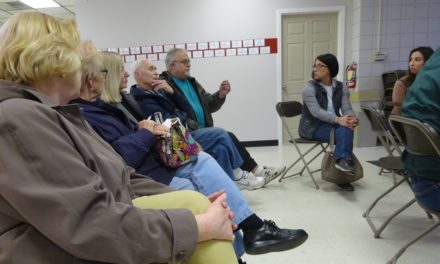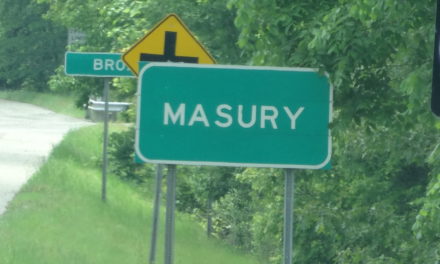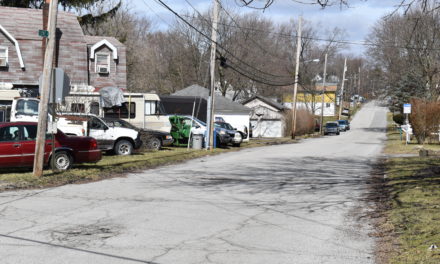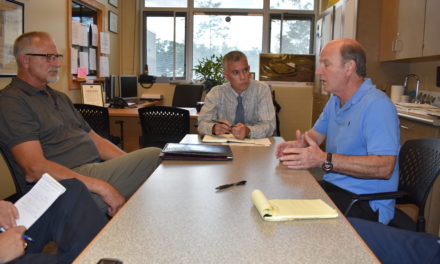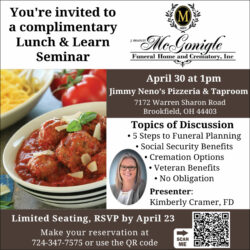Disagreement among Brookfield trustees about how to address the needs of township roads has led to one thing they can agree on: Brookfield needs a road levy.
Trustees said they hope to get the paperwork and official action taken either this month or early next month, so a levy can be placed on the November ballot.
The differing opinions have been driven by discussions over what to do with Brookfield’s unaccepted roads.
An unaccepted road is one that was not built to a set of minimum specifications dealing with road base and surface nor drainage and width, and the trustees are under no legal obligation to maintain it.
Even though an accepted road is the responsibility of township trustees to maintain, Trumbull County commissioners are the ones who deem a road to be accepted.
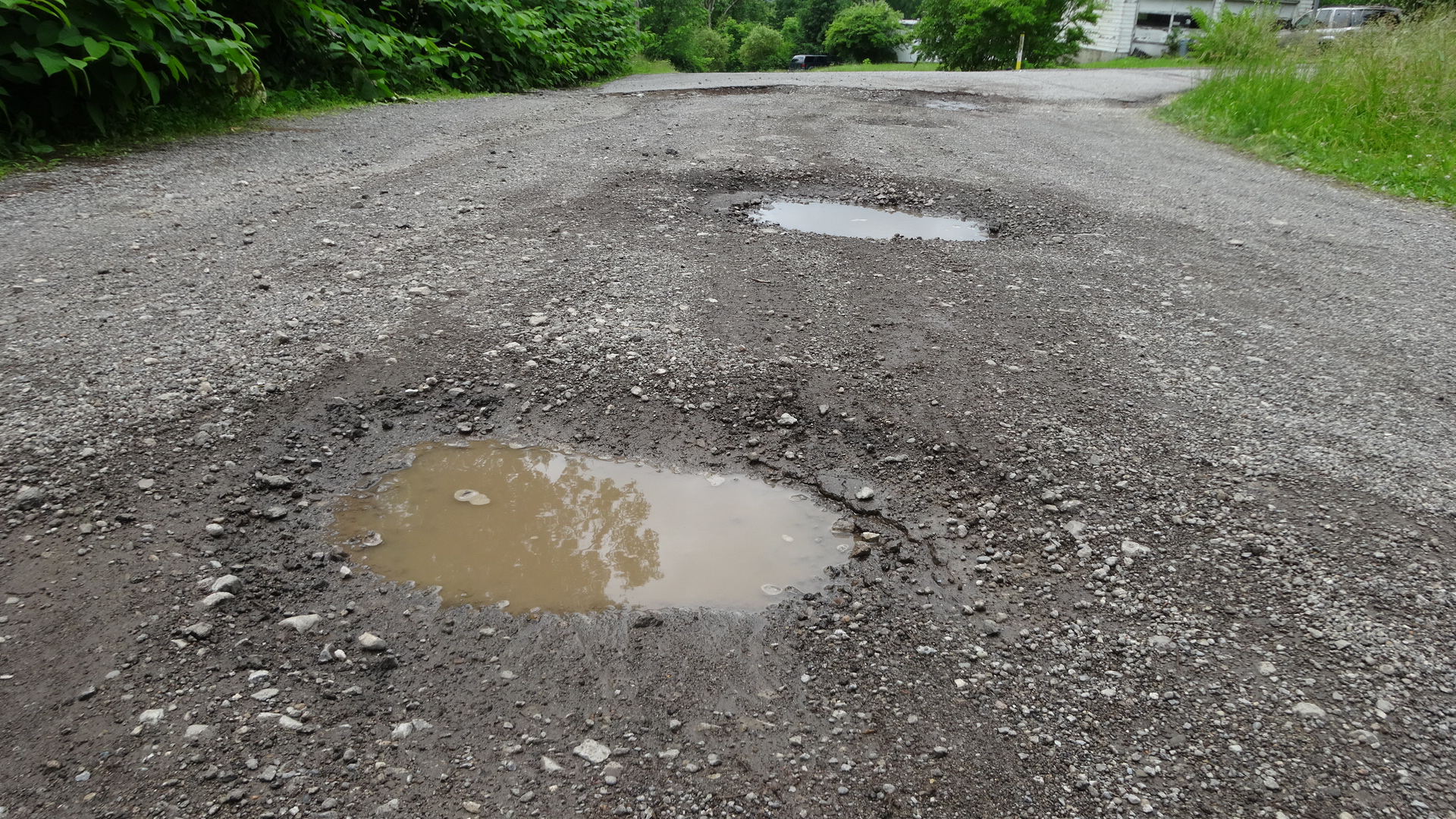
Wheeler Street at Linden Street
The township used to maintain unaccepted roads but stopped some 15 or 20 years ago upon the recommendation of Road Superintendent Jaime Fredenburg because of lack of adequate finances for roadwork. The trustees implemented a policy that allows the plowing of snow on unaccepted roads when at least three inches of snow has fallen.
Talk about unaccepted roads has increased with resident complaints and the recent paving of the section of Owsley Street between Meek and Wheeler streets. Wheeler is a dirt road, the condition of which Road Superintendent Jaime Fredenburg has described as like a minefield.
Fredenburg recommended doing enough work on Wheeler to make it passable, which would include adding about 50 tons of stone and grading it. The cost would be $1,000 to $2,000, Fredenberg said. Trustee Ron Haun refused to support it on April 29 and May 6, arguing that, if you’re going to work on an unaccepted road, it should be made an accepted road.
The Ohio Revised Code requires a unanimous vote to approve work on unaccepted roads, Fredenburg said.
Trustees Dan Suttles and Gary Lees also supported a motion May 6 to improve Gloria and George streets, two dirt roads with large ruts and holes in them.
“I understand the concept of that they’re unaccepted roads and we’re putting money into unaccepted roads,” Suttles said. “Believe me, I know we only have so much in funds. But, that being said, for some of those roads, not all of them, people live there. People pay taxes there. I, for one, believe they’re entitled to be able to at least drive to their house without driving in somebody’s yard and beating their vehicles up. I, personally, would like to see something done with those roads.”
Haun voted against the motion.
There is a way around the rule about unanimity: if residents present a petition asking the trustees to improve an unaccepted road, a 2-1 vote is sufficient, officials said.
“If you have people in that area, and you disagree with the decision that was made, we encourage you to get a petition and bring it to your trustees,” Haun said at the May 6 trustees meeting.
There are a couple of other, related issues at play: the township sets aside only $40,000 a year for road work, and Fredenburg has argued against using any of that money for unaccepted roads.
He noted that he would like to pave sections of Lincoln Street and Valley View Drive, both accepted roads, and the cost would wipe out the road work budget for the year.
The state recently enacted an increase in the gas tax, and officials said they have seen estimates that the township could expect to get about $85,000 a year to use for road work. Haun suggested setting aside a portion of that money for unaccepted roads.
“I don’t agree with that, because you need that money for the roads you got now,” Fredenburg said May 29.
That’s where the discussion of a road levy came in. Suttles said he had wanted to talk about a road levy in the future, but now considers it important because there are serious issues with both accepted and unaccepted roads, and would support a levy if officials came up with a plan for spending that money.
That plan should include a list specifying when a township road would be worked on, Lees said.
“If you have a plan, I think worst first,” Haun said. “That’s the type of plan we need, outside of the unaccepted roads.”
A 2-mill levy would bring in about $250,000 a year, officials said.

